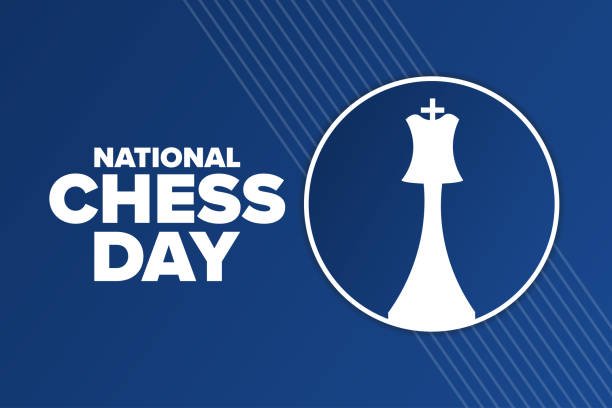Here is an essay on National Chess Day for students:
National Chess Day: Celebrating the Game of Strategy and Skill
National Chess Day is a holiday that honors the game of chess and its benefits for the mind and the society. It is celebrated every second Saturday of October in the United States, and has been officially recognized by President Gerald Ford since 1976. Chess is a game that has been played for centuries, and has captivated millions of people around the world. It is not only a fun and challenging activity, but also a powerful educational tool that can enhance cognitive abilities, foster critical thinking, and promote personal growth. In this essay, we will explore some of the benefits of chess for students, and how they can celebrate National Chess Day.
Benefits of Chess for Students
Chess is more than just a game – it is a mental exercise that can have numerous benefits for those who study and play it. Some of the benefits of chess for students are:
- Concentration and Focus: Chess demands sustained concentration and focus, requiring players to analyze positions, plan ahead, and anticipate their opponent’s moves. Regular chess practice helps students improve their attention span and develop the ability to concentrate for extended periods.
- Memory Improvement: Chess entails remembering and recalling numerous moves and strategies. By playing regularly, students can enhance their memory capacity, strengthening their ability to retain and retrieve information.
- Problem-Solving Skills: Chess is essentially a series of complex problem-solving tasks. Players must assess the situation, identify patterns, and strategize accordingly. Through chess, students sharpen their analytical skills and cultivate their problem-solving abilities.
- Logical Reasoning: Chess is a game governed by strict rules and logical principles. Students must learn to reason logically, deduce consequences, and evaluate possibilities. This skill set transfers to other areas of their academic and personal lives, enhancing their ability to approach challenges with a logical mindset.
- Strategic Planning: Chess necessitates strategic planning and foresight. Students learn to assess their current position, devise a long-term plan, and adapt their strategies based on their opponent’s moves. Through chess, students develop the invaluable skill of thinking strategically and weighing the consequences of their decisions.
- Confidence and Self-Esteem: Chess teaches students the importance of self-reliance and self-confidence. By playing chess, students learn to trust their own judgment, overcome difficulties, and cope with failures. Chess also boosts their self-esteem by providing them with a sense of achievement and recognition.
- Mathematics: Chess has a strong connection with mathematics, as it involves calculation, geometry, patterns, logic, and algebra. By playing chess, students can improve their mathematical skills, such as arithmetic, spatial reasoning, problem-solving, and mental calculation.
- Reading and Language Skills: Chess can also improve reading and language skills, as it requires players to read instructions, learn terminology, communicate with others, and write down moves. By playing chess, students can enhance their vocabulary, comprehension, grammar, and expression.
These are just some of the benefits of chess for students. There are many more advantages that chess can offer, such as creativity, imagination, time management, sportsmanship, ethics, teamwork, collaboration, stress reduction, and relaxation.
How to Celebrate National Chess Day
National Chess Day offers an opportunity to learn about and celebrate all things related to the history, challenge and enjoyment of the game. Here are some ideas on how to celebrate this special day:
- Play chess: Whether you are a pro or a rookie, pull out your chessboard and make your move. Enjoy a few games with friends, neighbors, or family. You can also play online or join a chess club or community.
- Watch a chess-related movie or T.V. show: Chess has been the focal subject in many movies and T.V. shows. We recommend “Magnus,” “Pawn Sacrifice,” and “Queen To Play.”1 You can also watch documentaries or interviews with famous chess players or experts.
- Host a tournament: Arrange a chess tournament for your friends and family. You can make it fun and competitive by adding prizes or trophies. You can also participate in local or national tournaments organized by chess associations or clubs.
- Learn more about chess: Read books or articles about chess history, culture, or strategy. You can also watch videos or listen to podcasts that teach you how to play better or introduce you to different aspects of the game.
- Teach someone how to play chess: Share your passion and knowledge with someone who is interested in learning how to play chess. You can teach them the basic rules, moves, and strategies, or help them improve their skills and confidence.
National Chess Day is a holiday that celebrates the game of chess and its benefits for the mind and the society. Chess is a game that has been played for centuries, and has captivated millions of people around the world. It is not only a fun and challenging activity, but also a powerful educational tool that can enhance cognitive abilities, foster critical thinking, and promote personal growth.
By playing chess, students can develop a wide range of skills that can be applied in other areas of their lives. National Chess Day offers an opportunity to learn about and celebrate all things related to the history, challenge and enjoyment of the game. By playing chess, watching chess-related movies or T.V. shows, hosting a tournament, learning more about chess, or teaching someone how to play chess, students can celebrate National Chess Day in a fun and meaningful way.




















